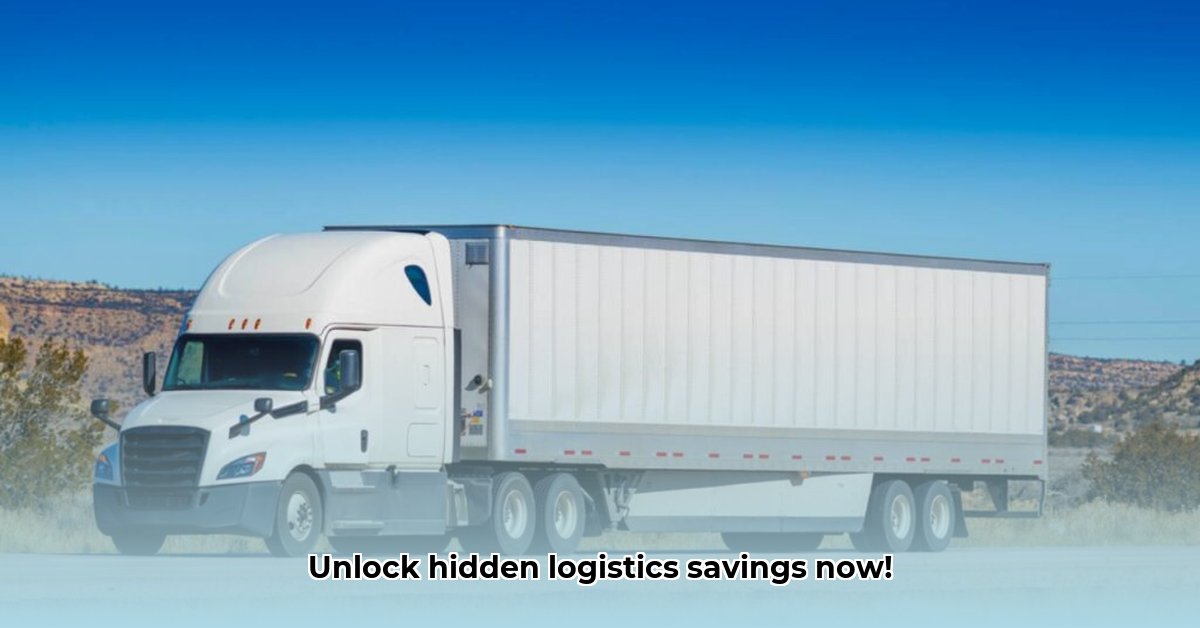
Understanding Empty Tractor-Trailer Weight: A Comprehensive Guide
Knowing the precise empty weight of your tractor-trailer is paramount for efficient and legal operations. This seemingly simple metric significantly impacts fuel consumption, payload capacity, compliance with weight regulations, and ultimately, your bottom line. This guide provides a step-by-step approach to accurately determining and managing your empty tractor-trailer weight. For more detailed information on average weights, see this helpful resource: average weights.
Factors Influencing Empty Weight Variation
The empty weight of a tractor-trailer is not a static value; it fluctuates based on several key factors. Understanding these variations is crucial for accurate estimations and efficient operations.
Tractor Type: Heavier sleeper cabs significantly increase weight compared to lighter day cabs. The added features, such as larger sleeping compartments and additional amenities, contribute considerably to the overall weight.
Trailer Type and Material: Different trailer types (dry van, reefer, flatbed, etc.) inherently possess varying weights due to their design and construction. Furthermore, the material used (steel versus aluminum) significantly impacts the empty weight. An aluminum dry van will weigh substantially less than a steel dry van of the same dimensions.
Manufacturer Variations: Though using the same model, variations in manufacturing techniques and materials used between manufacturers can result in differences in empty weight.
Additional Equipment: Lift gates, toolboxes, and other added equipment substantially increase the total weight. Even seemingly minor additions can accumulate over time.
Fuel: The amount of fuel in the tanks directly affects the total weight. This variable weight needs to be considered when calculating the actual empty weight.
Accurately Determining Your Empty Rig's Weight: A Practical Approach
Accurately determining your empty tractor-trailer weight is achievable through a systematic approach. Follow these steps for optimal results:
Initial Weigh-In at a Certified Scale: Before your first haul, weigh your empty rig at a certified weigh station. Record this weight meticulously, noting the date, time, and any additional equipment present. This provides a baseline for future comparisons.
Comprehensive Record Keeping: Maintain detailed records of your tractor-trailer specifications, including the make, model, year, and any modifications (added equipment, repairs, etc.). This information is crucial for effective weight management.
Leverage Technology: Utilize fleet management software to streamline weight tracking, reporting, and analysis. These systems often provide automated calculations and insights, simplifying the process.
Regular Maintenance: Proactive maintenance prevents added weight from damage, rust, or wear and tear. Regular inspections and repairs help maintain the original empty weight and prevent unexpected increases.
Periodic Weigh-Ins: Conduct periodic weigh-ins at certified scales to identify any unexpected weight fluctuations. This proactive measure helps detect potential maintenance issues or unauthorized additions.
The Significance of Knowing Your Empty Weight: Reap the Rewards
Understanding and managing your empty tractor-trailer weight offers substantial benefits:
Precise Invoicing: Accurate weight data ensures correct billing, avoiding any potential overcharging or undercharging of clients.
Enhanced Fuel Efficiency: A lighter rig translates to improved fuel economy, directly reducing operational costs. Even small weight reductions yield significant long-term savings.
Optimized Route Planning: Precise weight information allows for more efficient route planning, helping avoid routes with weight restrictions, thereby improving delivery times and reducing delays.
Legal Compliance: Staying within weight limits is crucial for safety and legal compliance. Understanding your empty weight significantly reduces the risk of costly fines for overweight violations.
Approximate Empty Weight Ranges for Common Trailer Types
The following table provides approximate empty weight ranges for common trailer types. Remember, these are estimates. Always conduct a physical weigh-in at a certified scale for the most accurate data.
| Trailer Type | Approximate Empty Weight Range (lbs) |
|---|---|
| Dry Van (Aluminum) | 27,500 - 32,000 |
| Dry Van (Steel) | 33,000 - 37,000 |
| Reefer (Refrigerated) | 35,000 - 42,000 |
| Flatbed | 30,000 - 35,000 |
| Roll-off | 32,000 - 40,000 |
Conclusion: Weight Management – A Key to Operational Excellence
Effective weight management is crucial for optimizing your trucking operations. By consistently monitoring and optimizing your empty tractor-trailer weight, you enhance efficiency, reduce costs, and ensure legal compliance. Remember, precise weight management isn't just about following regulations; it's about building a more profitable and sustainable business.